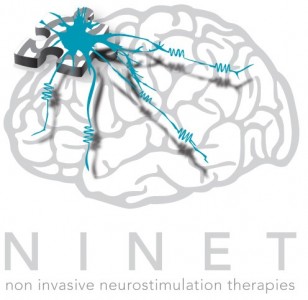Research
The Working with Depression research program conducts research studies in several areas related to workplace depression, including:
- Screening and early interventions for depression in work settings
- Relationships between burnout and depression
- Enhancing measurement-based care for depression treatment
- Optimizing antidepressant use in depressed workers
- Telephone- and computer-assisted delivery of psychotherapy (WORKER study)
- Optimizing interventions for depression in Employee and Family Assistance Programs
You can read summaries of some of these research initiatives below.
To learn more about our research studies that are currently underway, please click the “Participate in Research” link to the left.
WORKER Study:
The WORKER study examined the effectiveness of telephone-administered cognitive-behavioural therapy (CBT) as an easier-to-access, lower-cost, more convenient therapy option for people working with depression. We found that employed patients with depression who had combination medication (escitalopram) and telephone-CBT had superior improvement in work productivity than those who had medication alone, showing that telephone-CBT may be particularly helpful for working patients.
In a planned follow up study, we are now adapting the telephone-CBT program to focus on work-related issues. We expect to demonstrate that the tailored telephone-CBT program will show even greater improvement in productivity and work satisfaction, and reduce burnout, than the standard program.
Neurocognition and Work Productivity in Depression:
Cognitive difficulties, including difficulties with concentration, decision making, memory, and learning, are core features of depression that are particularly disruptive to job performance. This research study to examined which depression-related cognitive problems most interfere with ability to work. Patients completed computerized neuropsychological testing and measures of job performance and productivity before and after a standard treatment for depression. This allowed us to explore specific objective and subjective cognitive deficits that impair work functioning and with an eye to help to tailor treatments for specific cognitive symptoms in depression.
CAN-BIND (Canadian Biomarker Integration Network in Depression) Study:
We are participating in the multi-centre CAN-BIND project to investigate biological markers (“biomarkers”, such as blood-based proteins and genes, and brain scan images) that predict treatment outcomes in depression. This ongoing study involves gathering biological, physiological, neuropsychological, and clinical information from depressed people and (for comparison) from healthy volunteers. Clinical assessments will include standardized, validated measures of general and occupational functioning (including work productivity), before, during, and after treatment. We hope to promote personalized medicine by identifying tests that can predict a specific treatment for a particular person.
For more information, please visit the study website, at www.canbind.ca.

Transcranial Magnetic Stimulation and work outcomes:
Repetitive Transcranial Magnetic Stimulation (rTMS) is a new treatment for depression which has been found in short-term studies to be safe, non-invasive, well-tolerated and effective. Evidence to date suggests that cognitive functioning is not disrupted by rTMS, but there is still little information on how rTMS affects neurocognition and work functioning. We are planning a study to combine rTMS with standard treatments to rapidly improve mood and cognitive symptoms in order to optimize work functioning and productivity.
You can read more about TMS treatments and research studies on the Non-Invasive Neurostimulation Therapies (NINET) Lab website.
Employee Assistance Programs (EAPs):
In a study funded by the Canadian Institutes of Health Research (CIHR), we collaborated with Optum Health Services Canada (formerly PPC Canada/Interlock), a large EAP, to improve the recognition and outcomes of clients with clinical depression. We introduced systematic measures into routine clinical assessments used by Optum, including validated depressive symptom and occupational functioning scales. Anonymized data from 10,794 clients (including 9105 employees) were examined, showing that over 1/3 of clients had clinically significant depression or anxiety, and that depressed clients reported higher rates of absenteeism, presenteeism, prescription medication use, and alcohol/substance misuse than non-depressed clients. After EAP intervention, clients with depression actually showed greater improvement in functioning than non-depressed clients, but their overall functioning was still lower. This shows that depressed EAP clients may need additional services or referral.
We are now planning additional studies to examine productivity outcomes in EAP clients after standard care and after enhanced care using interventions, including telephone-CBT.
EXCITED Study (Extending Care Using Internet Treatment for Employees with Depression):
EXCITED was part of our workplace mental health campaign, the Stress and Depression Checkup (SDC), for faculty and staff of the Faculty of Medicine (FoM) at UBC. Users completed the SDC anonymously on a secure website featuring: 1) a research component, querying occupational functioning, work stress, and quality of life; 2) the SDC, measuring mood, stress level, and work functioning; and 3) the Mental Health Tune-Up, offering free access to an evidence-based self-care program. Online screening was convenient for identifying clinically significant symptoms among users (n=948), including 292 physicians, whose responses suggested significant rates of depression and anxiety. These results show that anonymous internet-based screening and intervention is feasible for a company.
